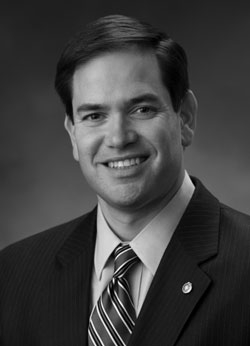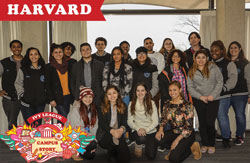Political Showdown: College Tuition Crisis
Presidential Candidates Edition
 Among the many topics that will be hot button issues during the 2016 Presidential Campaign, higher education and student loan debt should be the forefront of important issues for college students at Monmouth University and around the country.
Among the many topics that will be hot button issues during the 2016 Presidential Campaign, higher education and student loan debt should be the forefront of important issues for college students at Monmouth University and around the country.
According to Debt.org, the total amount of student debt in America is 1.2 trillion dollars. Also according to Debt.org, $3,000 dollars of student loan debt is accrued by students in this country every second (Yes, every second!) and the average amount of debt for 2014 graduates is a whopping thirty three thousand dollars. For 2015 graduates, that total will only grow if the current broken system of higher education is left unchanged.
Speaking for myself, my vote in the 2016 election will go to the candidate with the best solution to this problem– as a student at Monmouth University, my life after graduation will be directly affected by student loan debt.
Many young Americans have flocked to the side of Bernie Sanders. This attraction is due to his proposal of the “College for All Act,” which will attempt to make all public four year colleges and universities tuition free. Although this plan sounds good in theory– and in a perfect world, of course I would love my college education to be free– in reality this plan will never work.
In my opinion, the candidate who offers the best solution to this debt problem is Marco Rubio. Rubio offers the most realistic ideas to combat this issue. His ideas also involve the root of the problem of how student loan debt grew this out of control in the first place. Bernie Sanders’ plan neglects the root of the problem, which is why his idea will never work and would serve as a temporary government issued band-aide at best.
Before talking logistics for each candidate, let’s discuss the root of the problem. Pulitzer Prize winning columnist, George Will, said in an online instructional video for Prager University, “Washington created a bubble in higher education just the way it produced the bubble in housing. Some government planners decided that too few people owned homes. So the planners decided to force an increase in home ownership.”
What Will is referring to is when the government lowered lending standards for people seeking mortgages. He continued, “This produced a glut of subprime loans with subprime borrowers– and then a crash.”
Will explains that the increase in college tuition costs was created the same way. He said, “Next, some government geniuses decided that there were too few college students. So government made student loans and other tuition subsidies easier to get.” In the same way that the housing market crashed he explained, “Of course colleges and universities responded by increasing tuition to capture these government subsidies. Which is why college tuition has been rising four times the rate of inflation.”
In both of these cases, the easier access to loans did not help because of the lack of competition. The more accessible loans are to students, the higher tuition costs. Marco Rubio says of the lack of competition, “Higher education today is a monopoly. What it means is, you have to be an accredited college or university in order to award degrees.”
He then explained, “Guess who accredits the colleges and universities? The colleges and universities. Since they accredit themselves, they don’t want any competition. Since they have no competition, they can charge you whatever they want.”
Bernie Sanders plan does not acknowledge these core issues. He doesn’t recognize that part of the problem is the lack of competition with higher education. His plan is just as expensive as the current system– he even admits it. In a speech he said, “This plan is expensive but not doing anything is more expensive.” Is he right?
Kevin James, a fellow researcher for the Center on Higher Education Reform for the American Enterprise Institute said, “The idea would cost $70 billion dollars per year, more than twice what the federal government spends on Pell grants. And much of that money would provide a free education to students whose families can already afford it.”
Bernie Sanders, a self-described democratic-socialist, is adamantly for raising taxes for the rich and taking away their tax breaks. However, what better break could he give the wealthy than a free college education for their children? Meanwhile, the whole country would see a raise in taxes so overall this plan would only help the wealthy and add to the income inequality that he is trying to fight.
Getting back to the topic of competition, this plan would kill private schools. James said, “Free public college would limit choice as many private institutions, now trying to compete with a highly-subsidized, free public option, would likely struggle to survive.” So this plan would completely kill private schools such as Monmouth University and leave its employees out of a job.
This would start a trend of schools trying to compete over costs and not academic achievement. James also adds, “In addition to reducing options, this would significantly reduce pressure on public institutions to serve students effectively.” With this lack of competition, this would leave public colleges no incentive to push their students to succeed.
Marco Rubio’s ideas are much more effective and realistic. For him, this problem starts at the high school level. He said, “We don’t teach vocational skills in this country and for the life of me, I don’t know why.”
He continued, “Why don’t we teach young Americans, people in high school, how to fix cars and airplanes? How to be welders, plumbers and electricians. You know these people make a whole lot more than Greek philosophers do.”
Rubio is getting to the point that we are taught in high school that the only way to succeed in life is to go to college. Then we graduate college and wind up working the same jobs that we could have had before we went. The fact that college is looked at is the only way to go just devalues a college education.
Many people wind up graduating with a degree that does not prepare them to contribute to the economy. Rubio says, “I believe that before you take out a loan, schools should have to tell you, ‘This is how much people make when they graduate from our school with the degree you are seeking.’”
Then he joked, “Then you can decide if it’s smart to borrow $50,000 dollars to be a Roman or Greek Philosopher because the market for those philosophers has tightened over the last two thousand years.” Colleges need to stop encouraging students to graduate with degrees that they can’t use after they graduate.
Lastly, Marco Rubio believes that “It matter what you know, not where you learned it.” For those who are looking for promotions at their jobs, or have to work their way through college, do not have the time to attend a four year university and sit in hours of classes. So why can’t the knowledge that you already know count towards your degree? If you took the same class twice in high school, why do you have to take it another two times in college? There is plenty of online coursework and learning that people could use.
So if you take a class online for an online school, why can’t that knowledge count towards you Monmouth University degree? Rubio says, “We need to widen financial aid outside the monopoly of higher education to allow people to learn in alternative ways.”
The bottom line is, people need the education that is needed to earn a job. The point should not just be to pay thousands of dollars for a diploma that leaves you in the same position that you were in before college.
The higher education system can be more efficient and easier to access. It can also be done without massive government control and spending. What we need is another alternative, and Marco Rubio will provide that alternative.
IMAGE TAKEN from wikipedia.org

